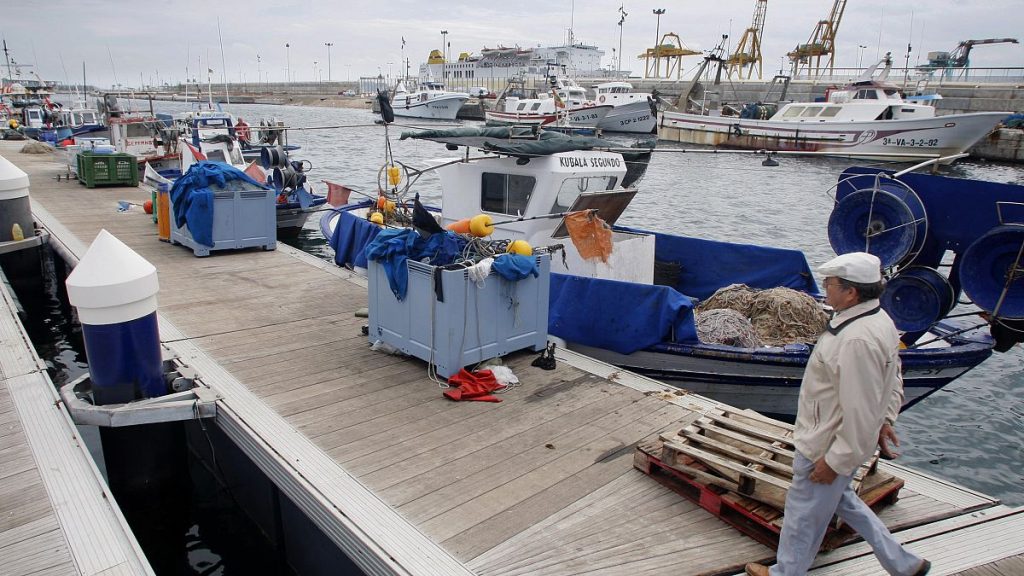The European Union has reached a crucial agreement on fishing limits for 2025, aiming to strike a delicate balance between the economic interests of fishing communities and the long-term sustainability of marine ecosystems. Following intense negotiations in Brussels, EU fisheries ministers agreed on reduced quotas for several key species in the Mediterranean, a region where overfishing poses a significant threat to marine biodiversity. The agreement, while hailed as a compromise, underscores the complex interplay of ecological concerns, economic pressures, and political maneuvering within the EU’s fisheries management framework.
The central issue in the negotiations revolved around fishing efforts, specifically the number of days trawlers are allowed to operate in the Western Mediterranean. The European Commission’s initial proposal, calling for a substantial reduction of 79% in fishing days by 2025, sparked strong opposition from key fishing nations like Spain, Italy, and France. These countries argued that such drastic cuts would cripple their fishing industries and jeopardize the livelihoods of thousands of fishermen. The final agreement reflects a compromise, with a reduction of 66% in fishing days for Spanish and French waters and 38% for Italian and French waters. However, this reduction is coupled with a compensation mechanism, allowing countries to maintain their 2024 fishing levels if they implement specific conservation measures.
This compensation mechanism, introduced in 2022, lies at the heart of the agreement’s complexity. It offers a pathway for countries to mitigate the impact of reduced fishing days by adopting practices like improved mesh sizes, seasonal closures, and selective fishing gear. While this approach incentivizes sustainable fishing practices, it also introduces an element of uncertainty. The effectiveness of these measures in achieving conservation goals remains to be seen, and concerns have been raised about the possibility of countries exploiting loopholes to maintain high fishing levels.
The negotiations highlighted the delicate political dynamics within the EU. Spain, Italy, and France presented a united front against the Commission’s initial proposal, demonstrating the significant political clout of the fishing industry in these countries. The final agreement reflects the influence of these member states in shaping the EU’s fisheries policy. While the reduced quotas represent a step towards sustainability, the inclusion of the compensation mechanism reflects the political realities of balancing environmental concerns with economic interests.
Despite the compromises reached, the agreement has garnered mixed reactions. While some celebrate it as a vital step towards safeguarding fish stocks, others express reservations about its ability to effectively address overfishing. Environmental NGOs, while acknowledging the positive aspects of reduced catch limits and conservation measures, have voiced concerns about the potential for the compensation mechanism to undermine the agreement’s overall impact. The mechanism’s inherent flexibility introduces an element of unpredictability, making it difficult to assess the long-term consequences for fish stocks.
The EU’s 2025 fishing agreement signifies a critical juncture in the ongoing effort to balance ecological sustainability with the socio-economic needs of fishing communities. The reduced quotas and the introduction of conservation measures, while significant, are intertwined with a complex compensation mechanism that introduces an element of uncertainty. The long-term success of this agreement hinges on the effective implementation of conservation measures and the ability of member states to resist the temptation to prioritize short-term economic gains over the long-term health of marine ecosystems. The agreement, while a compromise, underscores the ongoing challenges in achieving truly sustainable fisheries management in a complex political and economic landscape. The coming years will reveal whether the delicate balance struck in this agreement can truly deliver on its promise of protecting the Mediterranean’s fragile marine resources. The effectiveness of the compensation mechanism, the commitment of member states to implementing conservation measures, and the ongoing monitoring of fish stocks will be crucial factors in determining the ultimate success of this agreement. The agreement represents a step forward but also highlights the ongoing need for vigilance and adaptation in managing the complex interplay of human activities and marine ecosystems.














